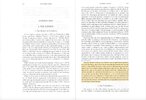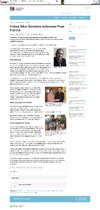greenbaggins
Puritan Board Doctor
Yes, I agree with this, Rich. To boil it down to a very nuts and bolts type of statement/question: on what biblical basis does the actual translation have to be done under church auspices? Wouldn't a church's approval of a translation function as a substitute for doing the actual translation itself? Theoretically speaking, even if a single individual did a translation of the Bible, that could still be approved by a church that didn't do the translation, and the authority issue is parallel. This gets at the sort of narrow or broad view of providence I brought up in the OP. When applied to this particular issue, the narrow view might claim that God's blessing only coincides with a churchly origin of a translation. Why is God so limited? Furthermore, most of the modern translations were done by a committee of men who were all members of the visible church anyway. So this objection to modern translations has zero weight.


